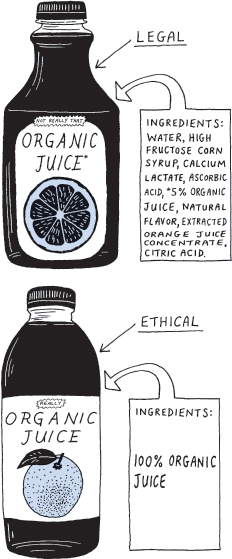LEGAL SPEECH VS. ETHICAL SPEECH
Printed Page 72

As we connect ethics and public speaking, it is worth observing that many people in the United States often confuse (sometimes intentionally) ethical speech with legally protected speech. Although these two concepts sometimes overlap—that is, what you say is both legal and ethically responsible to your audience—they are most definitely not the same. Ethical speech refers to incorporating ethical decision making into your public speaking process and into what you ultimately say. It means that you follow guidelines for telling the truth and avoid misleading an audience—because such actions are ethical and the right thing to do.
Focusing on legally protected speech, by contrast, refers to using the law as your boundary for what you may say and how you say it. Thus, with this approach, you would make decisions about telling the truth or withholding information based on whether there is a legal requirement to take a certain action or a legal consequence for violating the rules. When you rely on legal guidelines for acceptable speech, your decision-making calculus has nothing to do with ethics—it is only driven by what is technically within the legal rules. If you use legal protection as your guiding principle for speaking, you can technically stay within the bounds of what is lawful but still speak unethically.
It’s vital to note that far more types of speech are technically legal than are strictly ethical. In the United States, the First Amendment to the Constitution mandates “freedom of speech,” and this freedom allows for a vast range of legally protected statements. In fact, there are relatively few exceptions, and these are typically handled in narrow terms such as slander (intentional falsehood about another person), fighting words (words meant to provoke a violent response), and obscenity (hard-core, sexually explicit expression). Political speech—expression that relates to political discourse—is the most legally protected and privileged form of expression under the First Amendment, sometimes to a surprising degree. In 2012, congressional representative Michele Bachmann accused a State Department employee, Huma Abedin, of having ties to the Muslim Brotherhood—an organization with links to terrorism. She offered no proof of this assertion . . . because it simply wasn’t true! Many called her words McCarthyism (the practice of lobbing baseless and politically charged accusations), and even leading Republican lawmakers like Senator John McCain and House Speaker John Boehner denounced her claims. As political speech, Bachmann’s comments were fully protected by the Constitution, but that certainly did not make her speech ethically responsible.
Make sure that you understand the distinction between ethical and legal speech when crafting your own presentations. When you consider ethics, you are doing more than just what is legally required—you are doing what is morally correct for your situation.